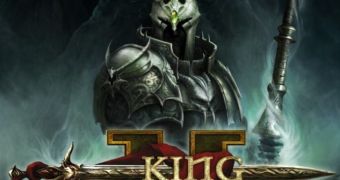I play quite a few video games as a Games Editor for Softpedia and for most of them I write reviews and assign a score on a scale from 1 to 10, in order to give readers a sense of what the title has to offer and whether it is worth picking up for the price that the publishers are asking.
One of the biggest problems with reviews, aside from overcoming natural biases and the need to explore as much of the game as possible, is how to evaluate the reality of what a game has to offer against the possibilities that it opens up.
At the start of 2012 I played King Arthur II, a mix between strategy, tactics and text adventure from developer Neocore Games and publisher Paradox Interactive, and I wrote a full review that can be read on Softpedia.
While playing the game I saw glimpses of potential greatness, from the richness of the game world and the way the text adventures are integrated with the fantasy Britannia setting to the design of the units and the way the knight heroes develop as the game progress.
I also had an experience that was affected by at least one game stopping bug and was frustrated by the limited freedom that King Arthur II gave me with everything from recruitment to army movement, which you can read about in my series of Gamer Diaries.
There’s a stark contrast between what King Arthur II could be (especially given the penchant that the development teams has for solid expansion) and what it actually was right there in front of me and I was conflicted: do I rate it simply based on what it offers at the moment or what it could deliver a while later?
I finally leaned more towards the first stance but I believe that modern video games, with their long patching history, DLC and expansion, are products which need to be viewed in the long term and it might be a good idea to sometimes look at the future of the game that we’re playing and think whether it can evolve into something better or will forever stay the same.

 14 DAY TRIAL //
14 DAY TRIAL //